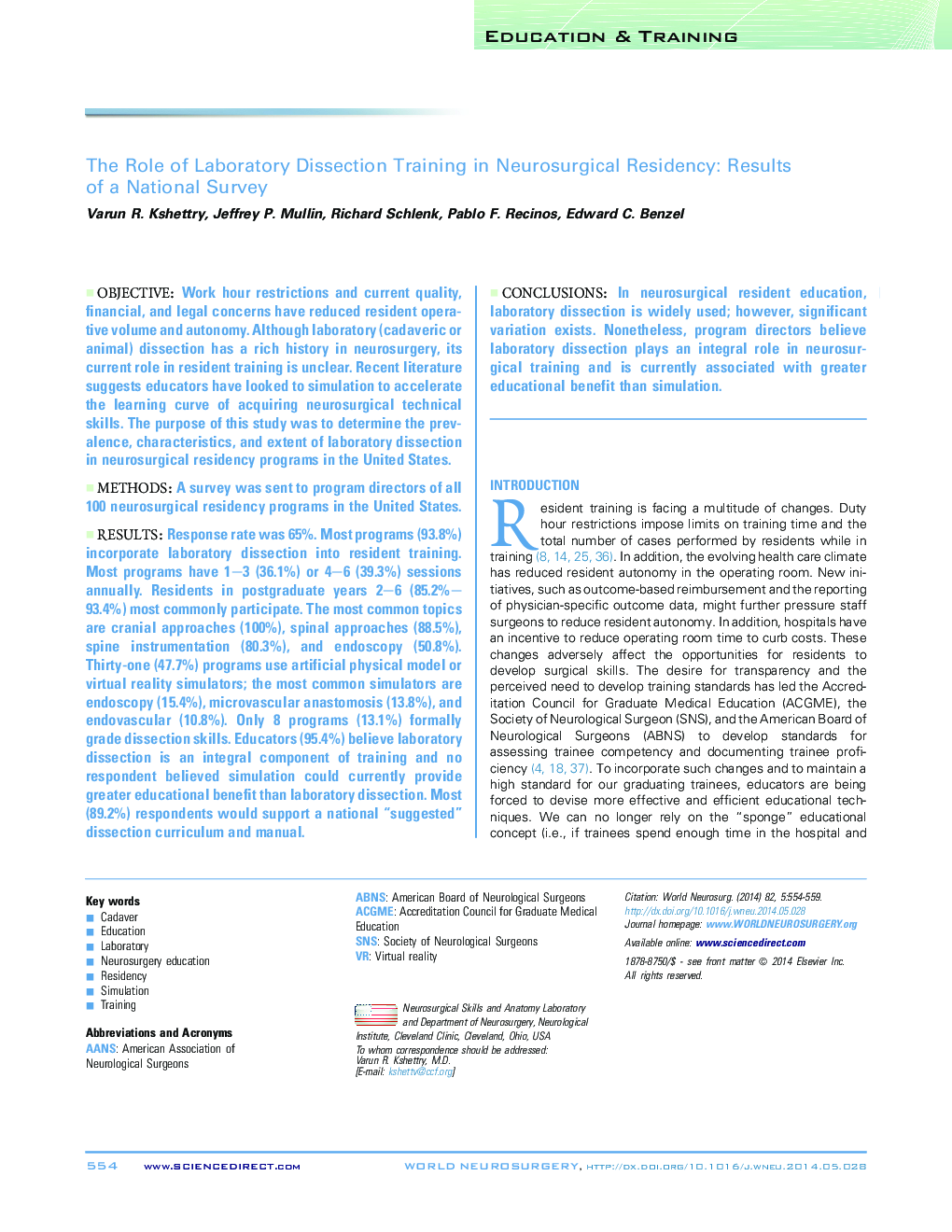| Article ID | Journal | Published Year | Pages | File Type |
|---|---|---|---|---|
| 3095274 | World Neurosurgery | 2014 | 6 Pages |
ObjectiveWork hour restrictions and current quality, financial, and legal concerns have reduced resident operative volume and autonomy. Although laboratory (cadaveric or animal) dissection has a rich history in neurosurgery, its current role in resident training is unclear. Recent literature suggests educators have looked to simulation to accelerate the learning curve of acquiring neurosurgical technical skills. The purpose of this study was to determine the prevalence, characteristics, and extent of laboratory dissection in neurosurgical residency programs in the United States.MethodsA survey was sent to program directors of all 100 neurosurgical residency programs in the United States.ResultsResponse rate was 65%. Most programs (93.8%) incorporate laboratory dissection into resident training. Most programs have 1–3 (36.1%) or 4–6 (39.3%) sessions annually. Residents in postgraduate years 2–6 (85.2%–93.4%) most commonly participate. The most common topics are cranial approaches (100%), spinal approaches (88.5%), spine instrumentation (80.3%), and endoscopy (50.8%). Thirty-one (47.7%) programs use artificial physical model or virtual reality simulators; the most common simulators are endoscopy (15.4%), microvascular anastomosis (13.8%), and endovascular (10.8%). Only 8 programs (13.1%) formally grade dissection skills. Educators (95.4%) believe laboratory dissection is an integral component of training and no respondent believed simulation could currently provide greater educational benefit than laboratory dissection. Most (89.2%) respondents would support a national “suggested” dissection curriculum and manual.ConclusionsIn neurosurgical resident education, laboratory dissection is widely used; however, significant variation exists. Nonetheless, program directors believe laboratory dissection plays an integral role in neurosurgical training and is currently associated with greater educational benefit than simulation.
